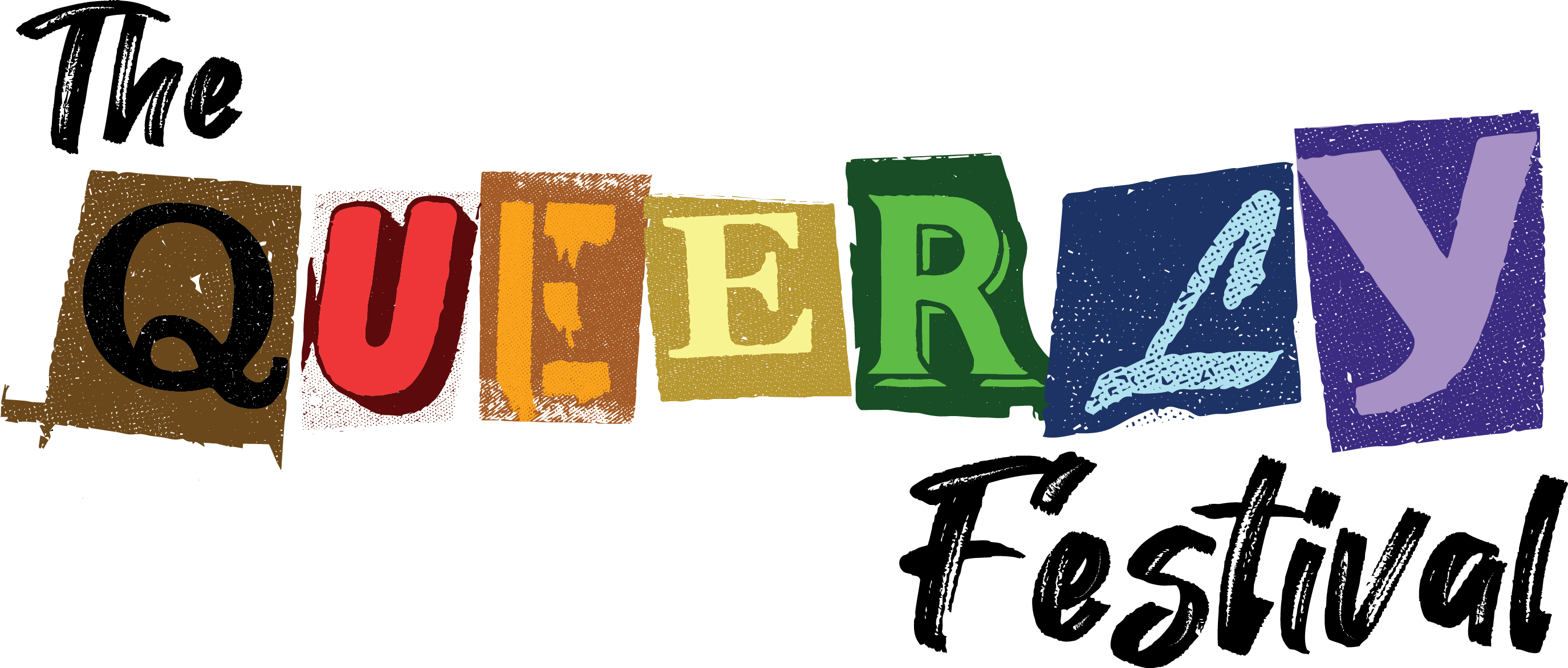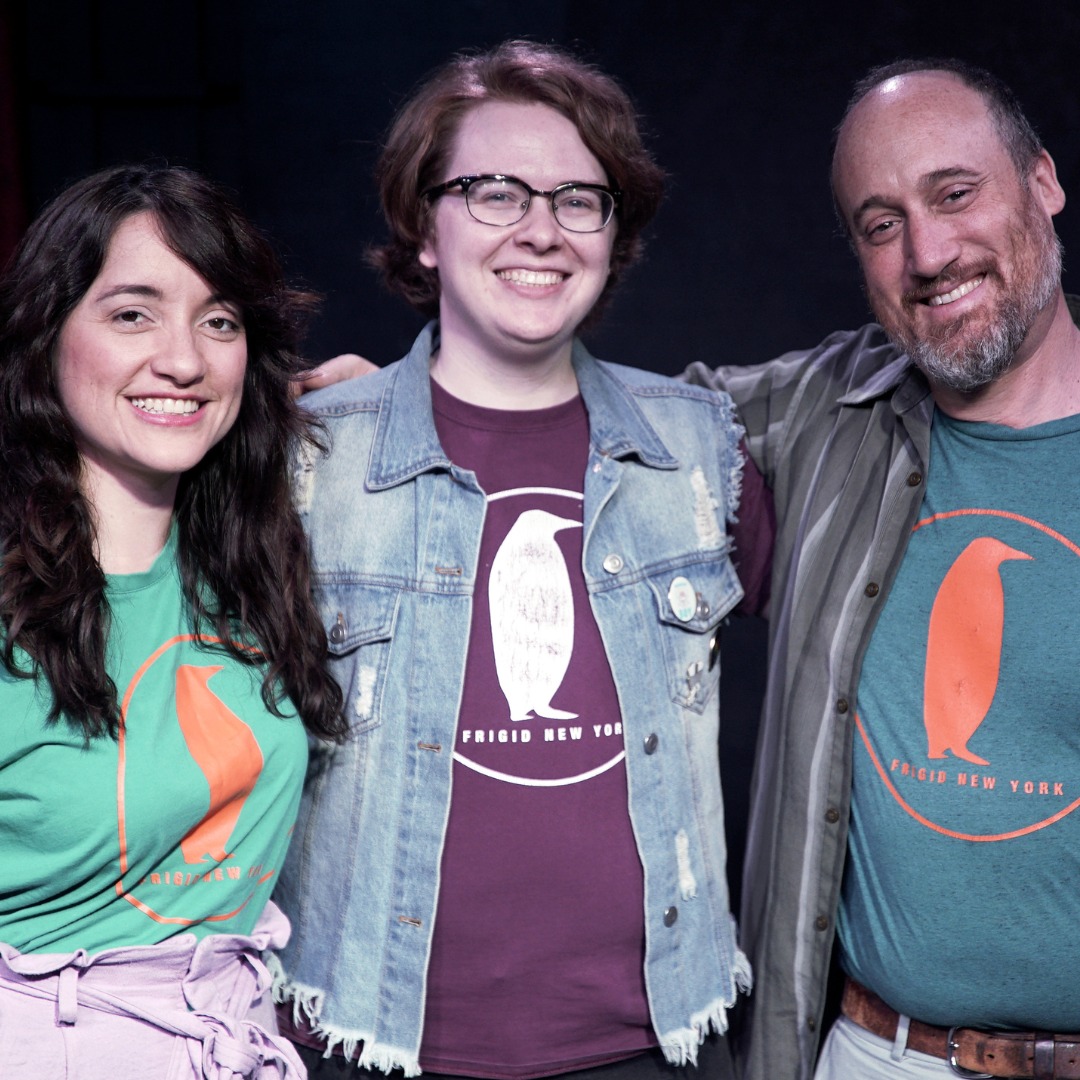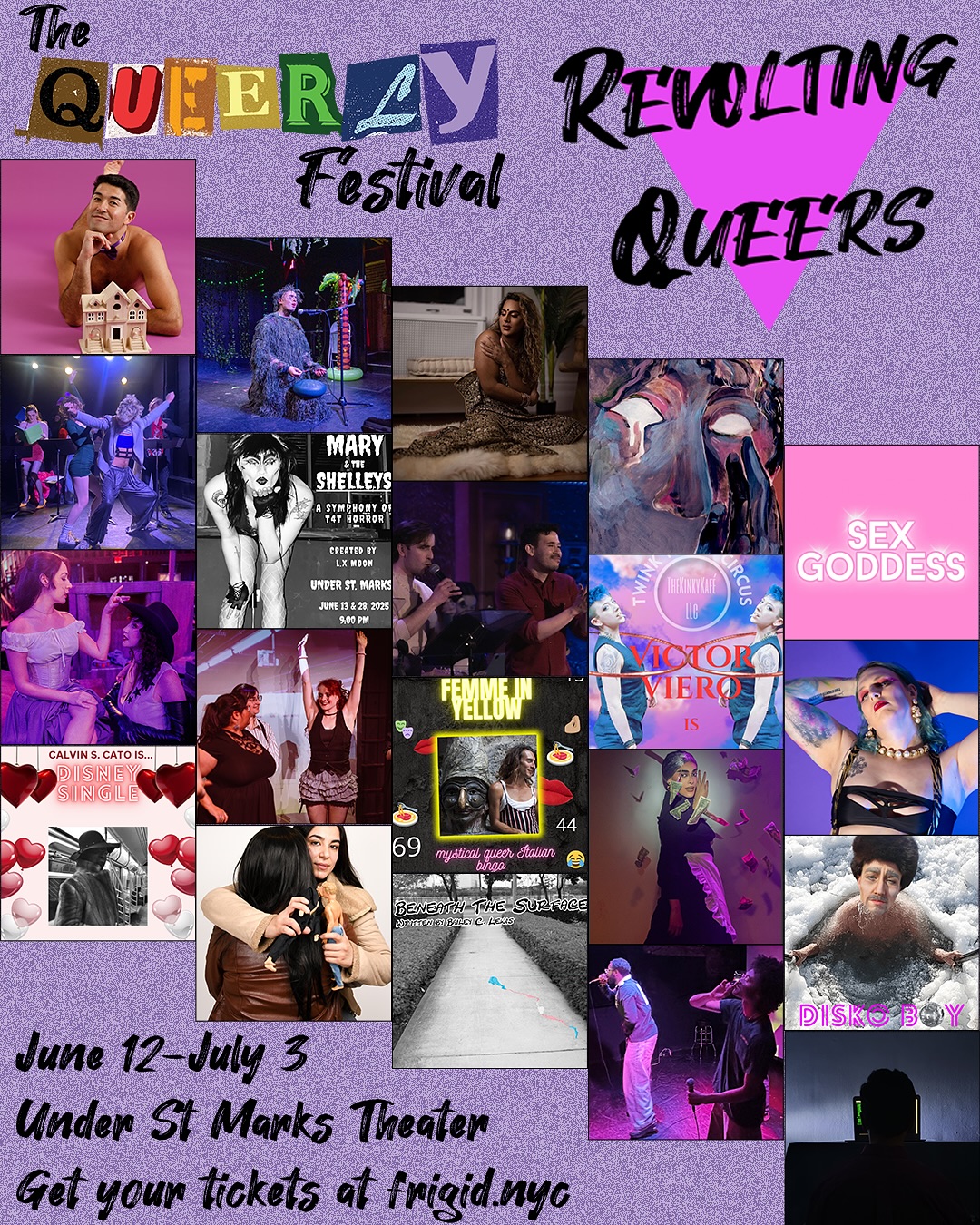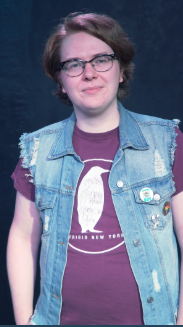Call Answered: Jimmy Lovett Interview: FRIGID NY’s Queerly Festival - A Home For Queer & Trans Artists
Jun 11, 2025
In this day and age we are living in extremely turbulent times. We have an administration who is looking to deport and strip the rights of anyone who is not like them.
So many people's human rights are on the line and we live in fear of what is going to happen next. Not even a year into this Presidency, it's frightening what has taken place.
That is why I am grateful for people like Jimmy Lovett who has been curating FIRGID NY'S Queerly Festival, for over 5 of its 11 year's existence.
FRIGID NY'S Queerly Festival has been a home for Queer & Trans Artists to showcase their work without judgement or fear.
In this interview, Jimmy answered my call to share:
- Why it's even more important to hold this year's festival
- What is one reason audiences should come see a show in the Queerly Festival
- How they go about selecting the various shows
- What advice they would give to a queer or trans playwright
- So much more
Connect with Jimmy: FRIGID NY Website, Instagram
Now in its 11th season, the Queerly Festival is FRIGID New York’s annual celebration of LGBTQAI+ artists. As American politics become more and more threatening to trans and queer people, the Queerly Festival stands loud and proud, refusing to be ignored or overlooked—or to change themselves to suit others.
This year Queerly Festival is presenting shows that celebrate queer/LGBTQIA2S+ resilience, power, determination, persistence, and resistance. We’ll be presenting plays about the history of the queer liberation movement, aggressively non-binary burlesque, stories of thriving in a world that rejects us, and a flagrant disregard of cis-het norms. This year, Queerly will be presenting a Queer Revolution of joy, rage, strength, exhaustion, and art.
This year's Queerly Festival will run from June 12, 2025-July 3, 2025 at Under St. Marks in NYC's East Village.

1. This June, you are curating the 11th annual Queerly Festival, which is FRIGID New York’s yearly celebration of LGBTQIA+ artists. In this political climate where trans & queer rights are trying to be taken away, why do you feel this year's festival is even more important? I feel like I’ve gotten this question since I started heading up Queerly, which is probably not a great sign for the political climate at large.
In the past, it’s felt a little dramatic, but, at least in terms of the lifespan of the festival, I think this is the year that it really is true, that we’ve hit “now more than ever.”
Queerly was founded in 2014, under the second Obama administration, a year before the Obergefell v. Hodges decision made same-sex marriage legal here on a federal level. We’ve been through a lot since then, both as a nation and for queer communities in particular.
This year, queer rights are under threat across the country at a level that we haven’t seen since before this festival was founded. By continuing to produce this festival, FRIGID New York is not only making a statement about our on-going commitment to the queer community, but to everyone who falls under the now-dreaded “DEI” heading.
2. With so many theatrical events happening in NYC, what is one reason you feel someone should come see a show in the Queerly Festival? Queerly offers a home to the kind of shows that might not be produced in other venues. While of course I want the festival to be successful, I’m not looking for shows that are “marketable.” If anything, I’m looking for things that aren’t, things that you wouldn’t see in most theaters.
The majority of media, even media that includes queer characters, is made for straight, cisgender audiences. Queer characters often have to explain themselves or are used as a plot device to move along someone else’s story or to show another character’s growth as they “overcome” accepting a queer person. Even media that is queer-centric tends to be written for a cis and/or straight audience and therefore ends up feeling like an intro Q&A, which is not fun for people inside of those communities to sit through. Queer creators are left to feel that if they don’t cater their work to a “mainstream” (i.e. cis-het) audience, they won’t be able to see it shared with the world.
Queerly is a space where no such self-censorship is required. If you’re looking for Queer 101 or Trans 101, you’ve come to the wrong place. I want our artists to not only be unapologetically queer, but joyfully queer, aggressively queer, bizarrely queer. I want to provide a space to showcase the incredible diversity of the queer community both in terms of the endless ways to be queer, but also in terms of the endless intersectionalities we see in our community.
Anyone can be queer–regardless of age, race, religion, gender or lack thereof, language, heritage, birthplace, immigration status, ethnicity, style of artistry, and so much more. There are no rules about who “gets” to be queer and anyone who’s trying to gatekeep that identity needs to have a good long think about why they might be doing that.
 Jimmy Lovett (Center) and the FRIGID NY Team
Jimmy Lovett (Center) and the FRIGID NY Team
3. Before we get too far into this year's festival, let's go back to the beginning for a moment, which is a very good place to start (😂). How did you get involved with curating the Queerly Festival? Queerly was curated and run by the wonderful Kevin R. Free, one of our former artistic directors, for many years. I was working front of house sporadically for FRIGID pre-Covid and I became Kevin’s boots-on-the-ground during the festival–helping with the box office, communicating with artists, and so forth.
After Kevin became the artistic director at another theatre, I took over Queerly by virtue of having worked on it with him and being queer myself (shocking, I’m sure). We ended up doing a virtual festival in 2020, which I co-curated with Kevin, if I’m remembering correctly, and then in 2022 we were back in the flesh and I had a full-blown festival on my hands!
So the short answer would be, by hanging around and being queer!
4. What do you get from putting the Queerly Festival together that you don't get from your other theatrical endeavors? Curating Queerly is one of my favorite things I do at FRIGID, even though it’s hard to pick the shows and turn down applications. I always want to take more shows than I should, but we only have so much time and space.
Queerly is my main opportunity to curate a line-up and try to craft an overall festival feeling or environment. It’s also when I have to go into hardcore scheduling and marketing modes, which are less fun, though important.
 Gay Cowboys Poster
Gay Cowboys Poster
Saylor Lake as Fancy SarahRae Jackson as Ann
5. With the multitude of submissions you get each year, how do you go about choosing the selected shows for each year? Painfully? I’m very good at agonizing over things. But I try to start with the practical and eliminate shows that just won’t work–that need something our space can’t provide, that are too long or too short, have really limited scheduling, anything with glaring red flags in the submission that tell me that they aren’t a good fit for the vibe–but it only helps so much.
From there, it’s a lot of reading through script excerpts, looking at video clips, and low-key Instagram stalking. Sometimes I’ll know the artist or someone on my team will, which is helpful; I try not to play favorites, but it’s good to know you have some solid folks involved. I try to get a balance of things. If I can, I do try to get one or two things that I think will do really well even if they’re a little less on-point because it does benefit everyone to be able to get that kind of attention.
I look at who’s leading the teams and try to prioritize shows led by trans folks and/or people of color. I look for shows that aren’t like each other. As much as I love queer burlesque, the whole festival can’t be that, for example. I look for shows that could help us reach a new audience–shows in languages other than English or that speak to a cultural minority. And then of course there’s just personal preference.
I really love queer history so if you want to get in next year that’s a tip. I tend to be pretty choosy with one-person shows largely because we get so many of them in the space throughout the year that they aren’t as exciting to me.
At the end of the day, you can only tell so much about a performance piece from the written word so it’s always a little bit of a gamble.
6. Is there a show you passed on, that you later regretted, and ended up inviting them into a future Queerly festival? Not that I recall. We have had shows that ended up not being able to do the festival that we were able to schedule for a later date or that have done an encore performance.

7. How do you feel the shows you selected for this year's festival, as press notes state, "demonstrate a celebration of queer resilience, presenting a Queer Revolution of joy, rage, strength"? I hate that I can say it, but simply by showing up under the Queerly banner, these artists are demonstrating a lot of strength–even here in New York City.
It’s easy to think that anti-queer discrimination and sentiment don’t live here, but they do; I’ve seen them. Being publicly and unapologetically queer, claiming space and taking the spotlight, putting ourselves first if only for an hour–all of these remain revolutionary acts.
As to this year’s line-up, we have trans burlesque, queer reimaginings of history, stories of fighting for our rights, trans punk rock, queerness represented across cultures, and so much more.
All together, it’s a roller coaster of emotions, but all brought by very strong artists.
8. What advice would you give to a trans or queer playwright who is afraid to write their show because of the current political climate we are in? I think there’s this instinct we have to tell people, “Don’t be scared,” and try to rationalize their fear away, but I don’t know that it’s ever helped anyone feel better. Being afraid right now is valid and it’s not that unreasonable.
Those of us who can be publicly queer owe it to those who can’t to do so, but that doesn’t mean you need to take risks that you aren’t comfortable with. If you truly think something isn’t safe, probably don’t do it. It is important for us to take the risks we can afford to take, but what that looks like varies from person to person and from situation to situation.
All that said, if there’s a story inside you, you gotta get it out. Or at least that’s my experience. Having a script rattling around in your head is not always pleasant so, if nothing else, write it down and stick it in a drawer (or on a drive) somewhere for later; at least it’ll exist even if it has to wait for brighter times to see the sun.
 Glitter Uprising Poster
Glitter Uprising Poster
Holli Hemlock, Photo Credit: Desiree de Sade Photography
9. How do you hope the Queerly Festival gives someone a better understanding of why a festival like this is needed? Our overarching culture connects queer–and especially trans–folks with negativity. We face discrimination, our families kick us out, the rates of un- and under-employment are much higher for us, we’re more likely to be attacked or murdered, and our very existence is a “debate.”
Even for our allies, it’s easy to have this association of suffering when thinking about queer and trans folks and that isn’t good for anyone. It’s what leads well-meaning parents to steer their children away from nontraditional gender expression. It makes us afraid to be open about who we are–sometimes even to ourselves. Pushed to extremes, it can make our own lives look like a lost cause. But there is so much more to being queer than that.
I want people outside of our communities to see queer and trans joy. I want them to see us embracing and celebrating ourselves, presenting ourselves to the world without fear or hesitation or censorship. It’s important that we create these positive associations to our communities, not just as a means of gaining public support, but also–and I believe more importantly–as a means of living more fully as ourselves.
10. What is something we didn't get to talk about in this interview that you'd like my audience to know about you? We have some multilingual shows this year! The Spanglish Affair open mic is, as you might guess, in a mix of Spanish, English, and Spanglish. Clay Mommy uses English, Yiddish, and Hebrew, Boys Meets Girl uses English and Hindi, and Loud & With Feeling uses English and ASL (American Sign Language) in the script and will also have full interpretation so it will be accessible to d/Deaf and hearing audiences alike.
To show my bias, I am especially excited about that last one. I’m currently back in college studying ASL and bilingual ASL-English theatre has been some of the most compelling and complex work I’ve seen so I’m very excited to be bringing that to the FRIGID community–and, of course, to be bringing Queerly to the Deaf community.
 Jimmy Lovett
Jimmy Lovett
More on Jimmy Lovett:
Jimmy is New York City transplant from North Carolina by way of Massachusetts where they attended Hampshire College. Born into a family of theater nerds, they learned to crawl up stairs in a theater and have generally refused to leave since. Jimmy has been working at Frigid since 2018 when they started as box office staff and has put up several coproduction shows here. They are proud to curate Frigid’s annual Queerly Festival in June. They are a writer, theater artist, and maker currently living in Brooklyn with one husband and two cats.


